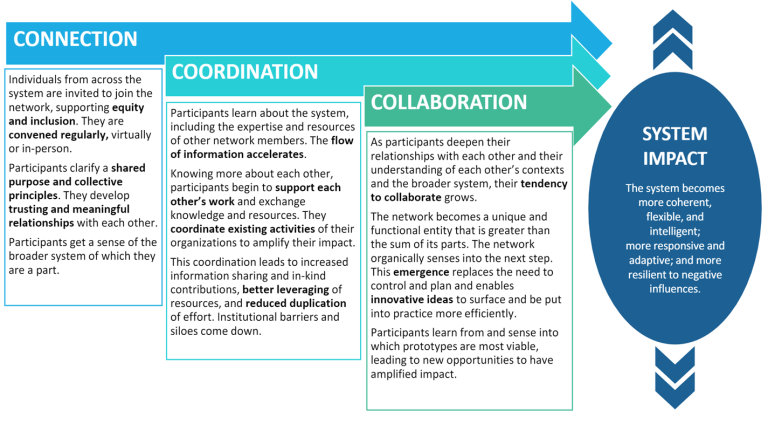News
In this first in a series of posts about our support for impact networks, we explain why Small Foundation is interested in impact networks as a powerful mechanism for systems change. You can read more about our network partners here.
At the heart of Small Foundation’s work is collaboration. We have known since inception that we can only ever be a drop in the ocean of finance and knowledge that is needed to achieve our vision, mission and goal. And yet our charitable objects articulate our optimism that through collaboration and partnership our drop can form part of a wave of change. Strategic collaboration is not just desirable; it is essential for us to achieve impact.

Figure 1: Four Ways to Deal with Problematic Situations, taken from Adam Kahane ‘Collaborating with the Enemy’ (2017)
It was with the initial motivation of information sharing and co-learning that Small Foundation first engaged with impact networks. In 2014 Small Foundation joined the Aspen Network of Development Entrepreneurs (ANDE) and the Global Impact Investing Network (GIIN) and benefitted immediately from the research and industry networking opportunities that these networks provide.
Since then we have been deepening the intentionality with which we work with networks as part of our wider portfolio of partners.
We now believe that impact networks – dynamic, multi-stakeholder initiatives that drive intentional connection, coordination and collaboration – are complementary to investing in innovative business models that unlock key services for rural-impacting micro, small and medium enterprises. Our network partners, for example agricultural finance networks such as CSAF, AFRACA and SAFIN, play vital roles in tackling information gaps and asymmetries, as well as creating a more conducive and enabling business ecosystem. Such impact networks also give our investees a greater chance of success and amplify their impact through well-designed and targeted connection and collaboration with other ecosystem actors.
Since 2018 Small Foundation has been learning from Converge, a US-based network of network leaders and facilitators, about practical ways to build trust between aligned actors and foster collaboration through impact networks. By placing the collective mission of the work, as opposed to the development of an organisation itself, at the centre, networks ensure that a purpose becomes the driving rationale and force for their existence.
Our collective hypothesis is that networks can foster the conditions for meaningful collaboration by supporting increased connectivity, encouraging coordination, and ultimately leading to collaboration. Here is our theory on the change that we hope networks can effect: 
Collaboration is as hard to achieve as it is essential. Impact networks provide an intentional framework and process to create the conditions for success and – ultimately – systems impact.
In future posts Small Foundation will share more about what we have learned so far on our network journey. We will explore such topics as network mindset, emergent outcomes, and assessing network impact. We will provide links to the funders and practitioners influencing us. Perhaps most importantly, we hope to introduce you to some of the network partners we support, who are at the cutting edge of driving connection, coordination and collaboration to tackle complex problems. We invite you to share your own reflections and learnings with us along the way. Achieving strategic collaboration is – after all – a collaborative endeavour.




